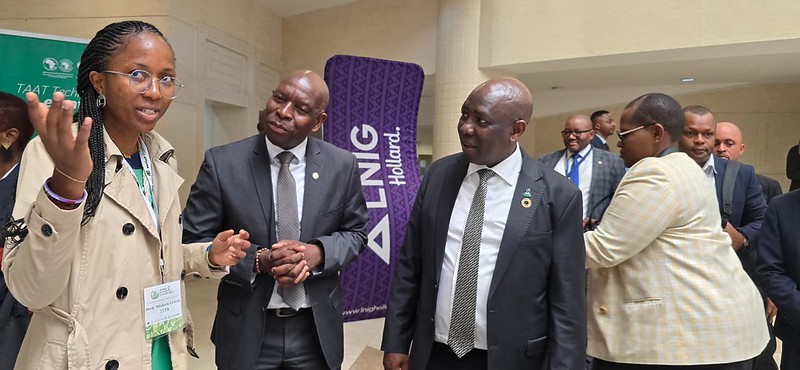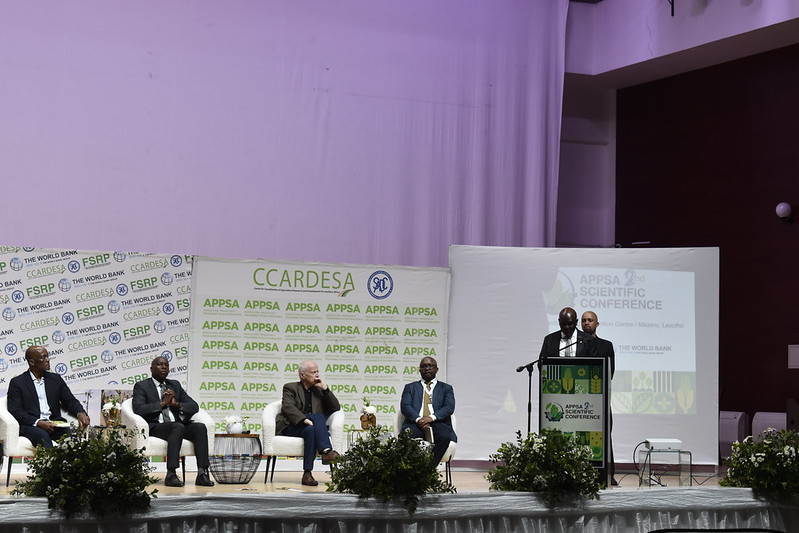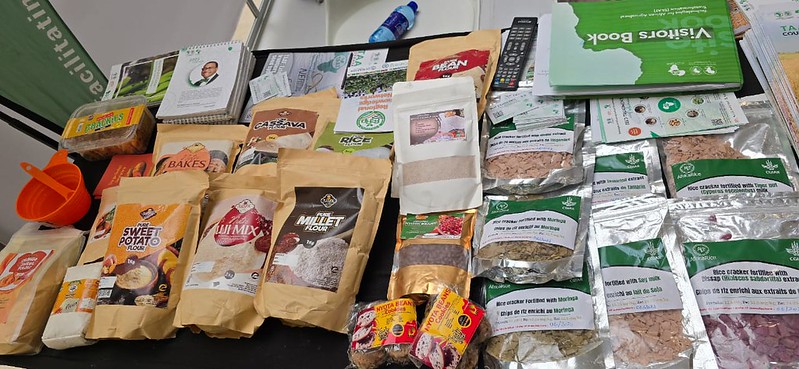
By Welissa Mulei
Technologies for African Agricultural Transformation (TAAT) has underlined the imperatives of adopting and scaling path-breaking, climate-resilient and innovative technologies to ensure Africa’s food and nutrition security.
Dr Solomon Gizaw, Head of the TAAT Clearinghouse, made this known at the 2nd Agricultural Productivity Programme for Southern Africa (APPSA) Regional Scientific Conference, which held from April 2 to 4, 2025, in the city of Maseru, nestled in the Mountain Kingdom of Lesotho.
Held under the theme “investing in agricultural research for sustainable development in the SADC region,” the conference brought together over 200 scientists, researchers, practitioners, policymakers and private sector actors who share a common passion for advancing food and nutrition security in the region to showcase the latest findings, tools, and methods aimed at improving agricultural practices and enhancing food production.
The event provided a veritable platform for TAAT to showcase its climate-smart innovations and value-added technologies, the e-catalogs, and strengthen regional partnerships, culminating in direct requests for collaboration.
“As we face growing challenges such as climate change and population growth, innovative research for development output becomes essential; hence TAAT, a central pillar of the African Development Bank’s Feed Africa strategy, is facilitating food systems transformation in Africa by providing access to path-breaking agricultural innovations, policy harmonisation, and robust seed systems,” Dr Gizaw said.
According to him, TAAT leverages funding from International Financial Institutions (IFIs), such as the African Development Bank (AfDB), the Islamic Development Bank (IsDB) and the International Fund for Agricultural Development (IFAD) by integrating its proven agricultural technologies into large-scale IFI-financed development projects, ensuring that the innovations are better targeted, implemented, and financially supported within these major investment programmes.
Responding to the conference’s thematic focus, Dr Gizaw, who was represented by Marie-Michele Codja, TAAT Technology Profiler, urged private sector actors to engage the African Cereal and Legume Breeding Consortium (ACLBC), a collaborative initiative driven by TAAT and the African Seed Trade Association (AFSTA), to accelerate the adoption and scaling of improved seed technologies in Africa.
“The consortium, alongside other TAAT initiatives like the e-catalogs and country engagement, clarifies the pathways to uptake, ensures that innovations move from research to adoption and to widespread use. From improved crop varieties and climate-smart practices to digital platforms and financing solutions, these initiatives are designed for scale — empowering farmers, strengthening value chains, and securing Africa’s food and nutrition security,” the TAAT Clearinghouse Head said.

“This is more than research. It’s about linking science with markets and policy to deliver real-world impact at speed and scale,” Dr Gizaw added.
The Honourable Thabo Mofusi, Minister of Agriculture, Food Security and Nutrition of the Kingdom of Lesotho, applauded the regional collaboration, stating, “This gathering is a testimony to what we can achieve when we pool our knowledge and resources as a region. Agricultural transformation requires strong partnerships, research-based solutions, and a commitment to working together for the benefit of our farmers and communities.”
A key highlight of the mission was a visit to the TAAT exhibition booth by the Honourable Mofusi accompanied by his Principal Secretary, the Honourable Thabo Moleko. Impressed by the technologies on display, the high-level delegation made a formal request for TAAT to provide technical backstopping and access to Vitamin A maize technologies to support Lesotho’s agricultural development goals.
The TAAT booth served as a dynamic hub for engagement throughout the conference, attracting a wide range of stakeholders from government, research institutions, and the private sector.
Visitors showed significant interest in specific TAAT-vetted technologies, including those related to orange-fleshed sweet potatoes (OFSP), pre-cooked High-Iron Beans, Vitamin A-enriched maize varieties, commercial Bt formulations for pest management, and soybean seeds.
The mission also marked a significant step forward for the adoption of TAAT’s knowledge management tools. Following demonstrations of the TAAT e-catalog, both CCARDESA in Botswana and the Tanzania Agriculture Research Institute (TARI) expressed strong interest in replicating the model to enhance technology dissemination within their own systems.
Reinforcing its commitment to capacity building, TAAT received a formal request from the Department of Agricultural Research in Lesotho for a “Training of Trainers” (ToT) session on value-added sweet potato products.
This aligns directly with TAAT’s cornerstone technical assistance approach, where ToT workshops are designed not just to transfer knowledge, but to fundamentally professionalise national systems. These efforts promote the regional exchange of agricultural technologies, ensuring the consistent availability of high-quality innovations for farmers.
The conference, co-hosted by CCARDESA and the Ministry of Agriculture of Lesotho, was enriched by the participation of several regional projects, including the Accelerating Impacts of CGIAR Climate Research for Africa (AICCRA), CAADP-XP4, and the IKI-funded Herding for Health project, fostering a deeply collaborative environment.












